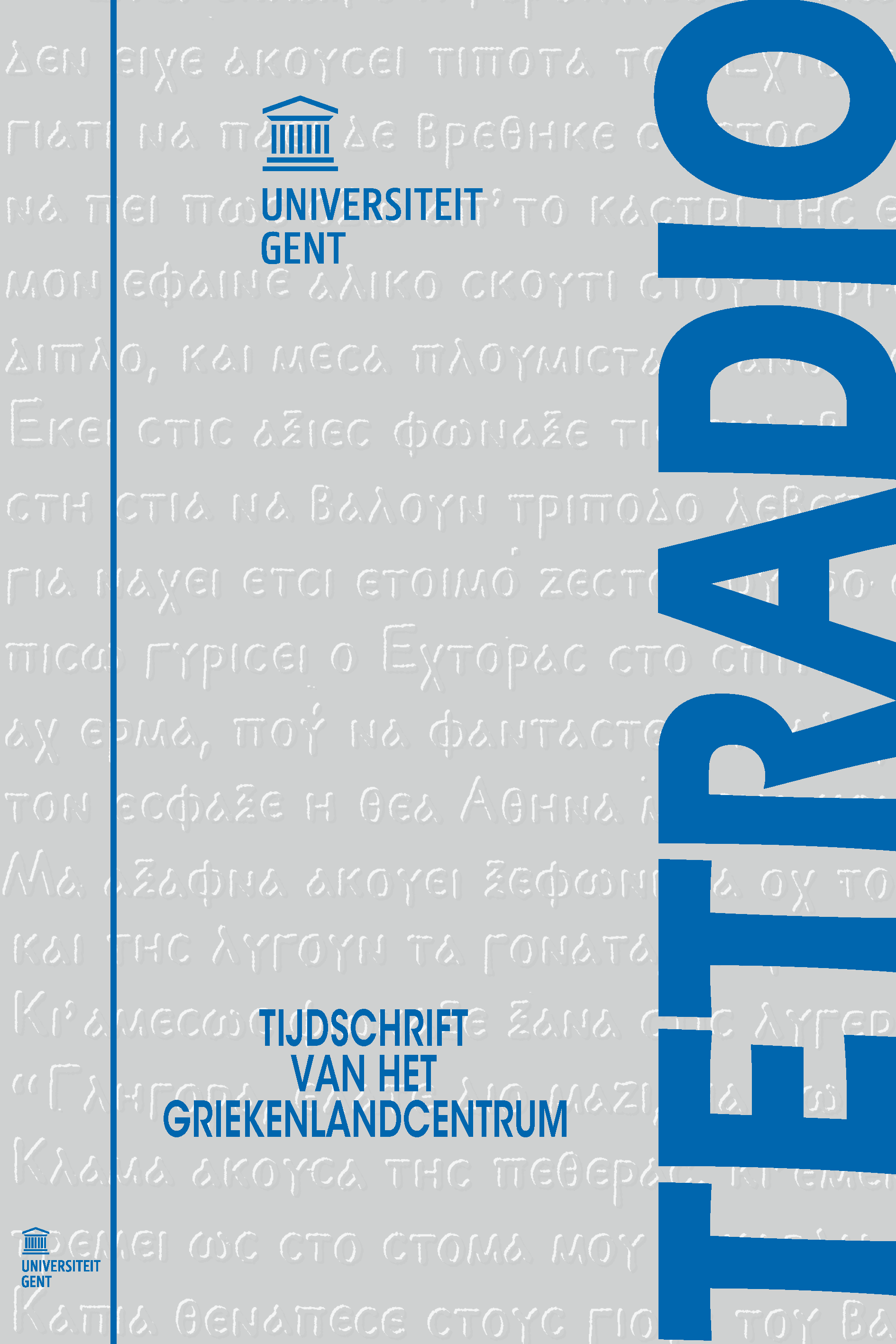De taal van Kazantzakis en haar (her)vertaling in het Nederlands
- Hero Hokwerda
Abstract
In this article Hero Hokwerda considers the difficulties involved in translating the language of Nikos Kazantzakis and explains his own choices in his recent translations of Zorba the Greek, Christ Recrucified and Captain Michalis. These new translations were in order, since the previous Dutch translations had been based on German translations of incomplete versions of the novels. Although Kazantzakis’ novels are written in dimotikí, the demotic (i.e. modern vernacular) Greek of 1900 and, to be more precise, the demotic Greek of rural Crete, Hokwerda has not tried to capture this aspect of Kazantzakis language by using a Dutch dialect for his translation. Instead he has concentrated on rendering the liveliness, directness and concreteness or earthliness of Kazantzakis’ language in Dutch. Important in this respect is to let go of the false contradiction between a ‘literal’ translation, in the sense of a ‘word for word’ or ‘text-like’ translation, and a ‘free’ translation. When it comes to capturing the world of the novels, that is, the culture of rural Crete in the late-nineteenth, early-twentieth century, the latter is often truer to the text than the former. Although Kazantzakis’ Cretan-Dimoticist language fits very well to the everyday world of his novels, for contemporary Greeks, who grew up with the moderate, urban demotic Greek of today, the language of Kazantzakis has a rather estranging effect. In this respect, a free translation of the text is more true to Kazantzakis’ language choices than a literal translation.
How to Cite:
Hokwerda, H., (2018) “De taal van Kazantzakis en haar (her)vertaling in het Nederlands”, Tetradio 27(1): 7, 127–134. doi: https://doi.org/10.21825/tetradio.91877
Downloads:
Download PDF
View PDF
